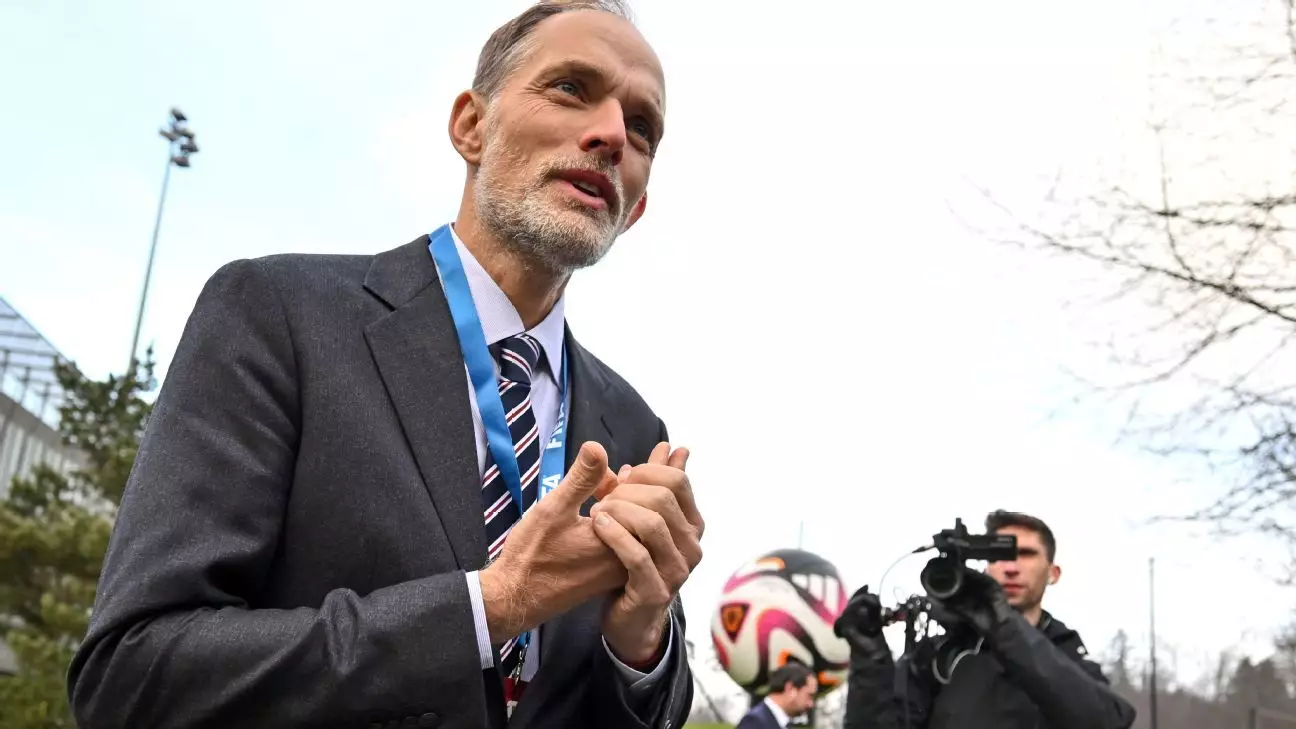The appointment of Thomas Tuchel as England’s head coach marks a significant shift in the nation’s football narrative. Officially taking over from Gareth Southgate on January 1, Tuchel is not only stepping into a prominent role but is also carrying the weight of expectations from both the FA and England’s passionate supporters. His first official games on the sidelines are scheduled for late March, but his eagerness to start scouting talent demonstrates a proactive approach. Tuchel’s immediate attendance at the Premier League fixture between Tottenham Hotspur and Newcastle United reflects his commitment to understanding the player dynamics before he officially steps into his role.
This weekend’s fixture is particularly crucial, as Tuchel will be analyzing several players likely to represent England in forthcoming World Cup qualifiers. The likes of Dominic Solanke, James Maddison, Anthony Gordon, Tino Livramento, and Lewis Hall are all players tipped to make an impact in the match. The strategic insight Tuchel gains from this match will be integral in shaping his continuation of the national squad’s development. Unlike previous managers who often relied more on established stars, Tuchel’s focus on emerging talent signifies a more holistic managerial approach, aimed at fostering a new generation.
In tandem with his scouting efforts, Tuchel has initiated changes within his coaching staff, bringing in three key figures to assist him. The inclusion of Hilario, Nicolas Mayer, and James Melbourne underscores Tuchel’s desire to foster a familiar and efficient working environment akin to those he enjoyed in club football. Hilario, a former goalkeeper for Chelsea, not only knows the Premier League intimately but has also built a rapport with Tuchel that could bridge tactical ideas between the training ground and the pitch seamlessly. Meanwhile, Melbourne’s analytical prowess and Mayer’s performance coaching background promise to round out the team’s capacity to adapt and optimize player fitness, which is critical in international fixtures.
The FA’s decision to appoint Tuchel is indicative of a broader trend in football management where the emphasis is shifting toward a more integrated approach to coaching that prioritizes both technical ability and psychological resilience. This is particularly essential for England, a team that has seen its talents squandered far too often in high-stakes situations. Tuchel’s experience with elite clubs like Bayern Munich and Chelsea, where he won major trophies, offers a fresh perspective that could elevate the players’ mentality and performance under pressure.
Tuchel’s upcoming matches against Albania and Latvia are not merely engagements; they are pivotal moments that could set the tone for his tenure. Given the intensity of international football, results will matter, and Tuchel’s approach to these qualifiers will likely be influenced not only by the scouting insights he gathers this weekend but also by his previous successes. The transition from club to international management can be daunting, but with an effective communication strategy and a robust support team, Tuchel might just navigate this challenge to reinvigorate England’s footballing landscape.

